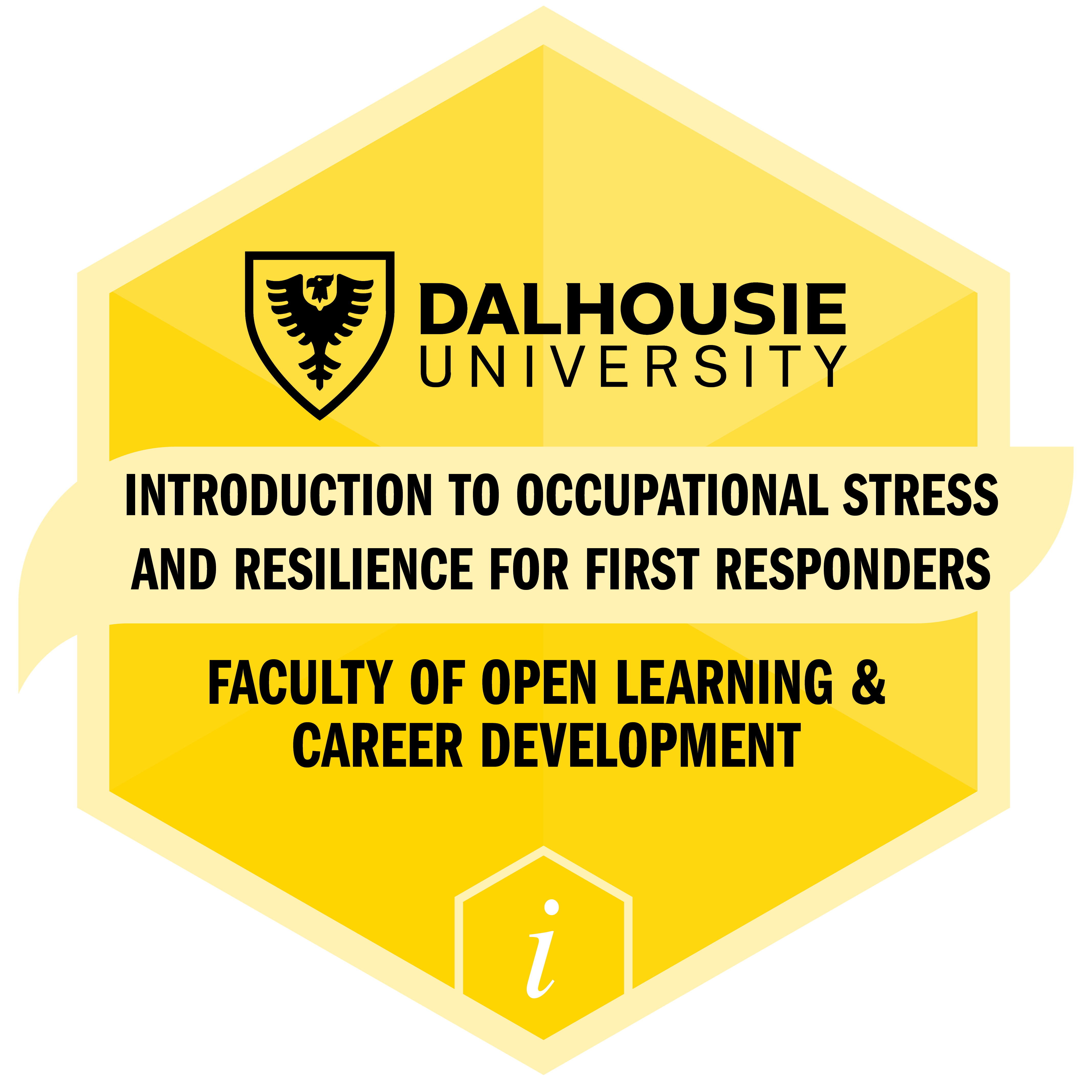Course Description
Participants will explore the intersection of occupational stress and resilience in first responders through the lens of occupational science. The focus will be on understanding and responding to trauma, while providing tools for fostering wellness and resilience in these high-pressure roles. Emphasis will be placed on the psychological demands and risks involved.
Participants will examine how individual experiences are shaped by organizational and environmental factors, assessing the broader workplace influences on mental health. Special attention will be given to identifying sources of stress, coping strategies, and leadership responses that support resilience in first responders.
Designed for first responder leaders, the course equips participants with essential knowledge and skills needed to enhance mental health and promote resilience within their teams.
Course Outline
Each module is delivered over two weeks:
Module 1: Understanding Occupational Stress and Building Resilience
Module 2: Navigating Trauma and Overcoming Stigma
Module 3: Enhancing Support Systems and Planning for Long-Term Well-being
What You Will Learn
By the end of the course, participants will be able to:
- Assess occupational stress and resilience factors affecting first responders.
- Analyze organizational and environmental factors influencing well-being.
- Explore specific types of stress and trauma unique to first responder roles and the related psychological impacts.
- Examine the role of stigma in personal and professional growth and identify organizational strategies to reduce stigma and foster a supportive environment.
- Evaluate the effectiveness of mental health support services and wellness programs for first responders, identifying service gaps.
- Propose strategies to enhance resilience, improve well-being, and support recovery within the first responder community.
Microcredential
This course provides learners with the opportunity to earn a microcredential. A microcredential is evidence of a skill or competency that is employment related..  Dalhousie microcredentials are developed in collaboration with employers, industries, and/or organizations that relate to the content. A microcredential can be displayed on social media pages, digital resumes, personal webpages, and in email signatures. To earn the microcredential in this course, learners will need to successfully complete a competency-based assessment.
Dalhousie microcredentials are developed in collaboration with employers, industries, and/or organizations that relate to the content. A microcredential can be displayed on social media pages, digital resumes, personal webpages, and in email signatures. To earn the microcredential in this course, learners will need to successfully complete a competency-based assessment.
Learn more about this microcredential here.
Notes
The Faculty of Open Learning & Career Development recommends an intermediate level of English language proficiency for the most effective learning and participation in our online and face-to-face courses. A list of minimum recommended scores on some common English tests can be found on our website. If you have questions about your English language proficiency and ability to succeed in this course, please contact openlearning@dal.ca.Recommended For
This course is recommended to current and future leaders and supervisors within first responder agencies (i.e. police, fire, paramedics) with a desire to increase their knowledge of occupational stress and resilience, and to create positive opportunities within the workplace to address related mental health needs.
Applies Towards the Following Certificates
- Certificate in Advanced Fire Service Administration : Electives
- Diploma in Executive Fire Leadership : Electives
- Diploma in General Fire Leadership : Elective - Certificate in First Responder Health and Wellness, Elective - Certificate in Advanced Fire Service Administration, Required - Certificate in General Fire Service Administration
- Certificate in First Responder Health and Wellness : Required
- Certificate in General Fire Service Administration : Electives
- Certificate in Police Leadership : Elective
- Certificate in Police Supervisory Skills : Electives
 Seia Roots (RCC, MCP:AT) is a Clinical Counsellor, Art Therapist, and Mental Health trainer, facilitator, and curriculum designer based in British Columbia. With over 20 years of experience at the Canadian Mental Health Association (CMHA), Vancouver-Fraser Branch, Seia served as the Principal Curriculum Designer for numerous initiatives, including Resilient Minds: Building the Psychological Strength of Fire Fighters. She is also a lead trainer with Mental Health First Aid Canada.
Seia Roots (RCC, MCP:AT) is a Clinical Counsellor, Art Therapist, and Mental Health trainer, facilitator, and curriculum designer based in British Columbia. With over 20 years of experience at the Canadian Mental Health Association (CMHA), Vancouver-Fraser Branch, Seia served as the Principal Curriculum Designer for numerous initiatives, including Resilient Minds: Building the Psychological Strength of Fire Fighters. She is also a lead trainer with Mental Health First Aid Canada.